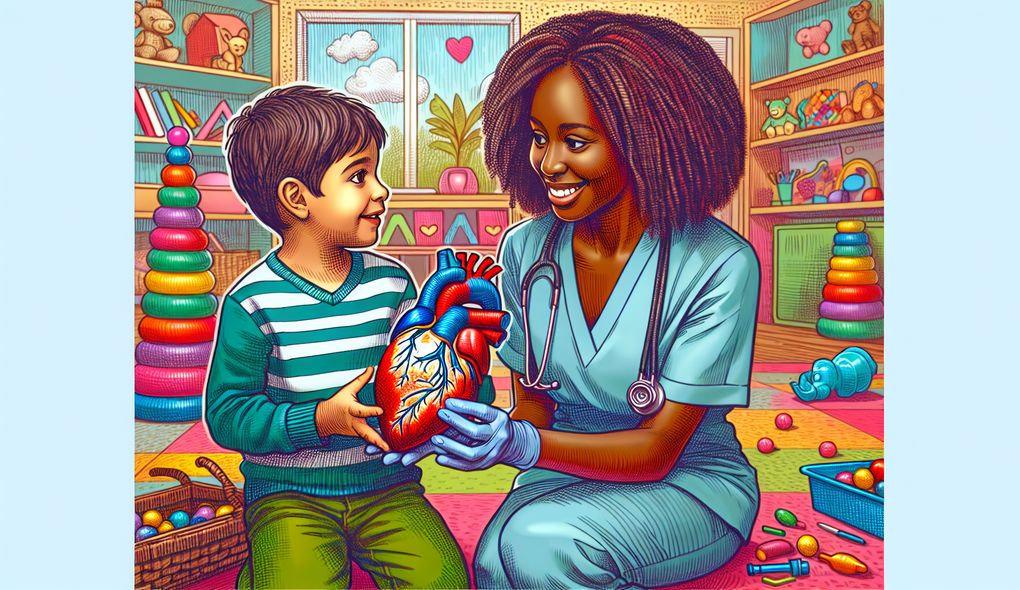Can you describe a time when you had to make a difficult decision as a child life specialist? How did you approach that decision-making process?
SENIOR LEVEL

Sample answer to the question:
As a child life specialist, I remember a challenging decision I had to make when a young patient's parents were unable to agree on a treatment plan. The child had a chronic condition that required ongoing medical intervention, and both parents had different opinions on what was best for their child. I approached this decision-making process by first listening to both parents and understanding their concerns and perspectives. I then consulted with the medical team and reviewed the child's medical history and progress to determine the most appropriate course of action. I organized a meeting with both parents and the medical team to discuss the treatment options and provide them with all the information they needed to make an informed decision. Ultimately, we were able to reach a consensus that prioritized the child's well-being and ensured continued care.
Here is a more solid answer:
As a Senior Child Life Specialist, I have encountered numerous challenging situations that required difficult decision-making. One specific instance comes to mind when I had to make a decision regarding a child's participation in a medical procedure. The child was afraid and hesitant to proceed, but the procedure was necessary for their treatment. I approached the decision-making process by first establishing a trusting relationship with the child. I spent time playing and talking with them to understand their fears and concerns. I then collaborated closely with the medical team to explore alternative options and develop strategies to alleviate the child's anxiety. We held a family meeting, where we discussed the benefits and risks of the procedure and involved the child in the decision-making process. With the support of the child's family, we were able to create a customized plan that addressed the child's emotional needs while ensuring their medical treatment was completed successfully.
Why is this a more solid answer?
The solid answer provides a more comprehensive and specific example of the candidate's decision-making process as a child life specialist. The candidate demonstrates their ability to establish rapport with the child, collaborate with the medical team, involve the family, and address the emotional needs of the child. The answer also aligns with the required skills and qualifications from the job description. However, it could still be improved by providing more specific details and examples of the candidate's leadership abilities in this situation.
An example of a exceptional answer:
As a child life specialist, I faced a complex and challenging decision when caring for a terminally ill child who was experiencing significant pain. The medical team was divided on the appropriate course of action, with some advocating for aggressive pain management and others expressing concerns about potential side effects. In approaching this decision-making process, I convened a multidisciplinary meeting to bring together the various perspectives involved. We thoroughly reviewed the child's medical history, previous treatment responses, and current research on pain management in pediatric palliative care. I facilitated open and respectful discussions, ensuring that all team members felt heard and valued. Through a collaborative decision-making process, we arrived at a comprehensive pain management plan that combined pharmacological and non-pharmacological interventions. By involving the child's parents in the decision-making process and providing them with emotional support, we achieved a treatment plan that not only addressed the child's physical pain but also promoted their overall well-being and quality of life during their remaining time.
Why is this an exceptional answer?
The exceptional answer provides a highly detailed and complex example of a difficult decision the candidate had to make as a child life specialist. The candidate demonstrates exceptional leadership abilities in convening the multidisciplinary meeting and facilitating open discussions. The answer also showcases the candidate's advanced knowledge of child development, advocacy for the emotional and developmental needs of children, and ability to provide holistic care. The answer aligns perfectly with the required skills and qualifications from the job description.
How to prepare for this question:
- Reflect on past experiences where you had to make difficult decisions as a child life specialist. Think about the specific details of each situation, the approach you took, and the outcome.
- Familiarize yourself with evidence-based practices in child life programming and child development. Stay up-to-date with the latest research and guidelines in the field.
- Practice effective communication skills, including active listening and empathy. Prepare examples of how you have effectively communicated with children and families from diverse backgrounds.
- Develop your problem-solving skills by analyzing complex case studies and practicing decision-making in high-pressure situations. Consider seeking guidance from experienced child life specialists or mentors.
- Reflect on your experience as a leader in a multidisciplinary team. Prepare examples of how you have mentored and supervised junior staff members, and how you have collaborated effectively in a team environment.
What are interviewers evaluating with this question?
- Communication Skills
- Problem-solving Skills
- Leadership Abilities

